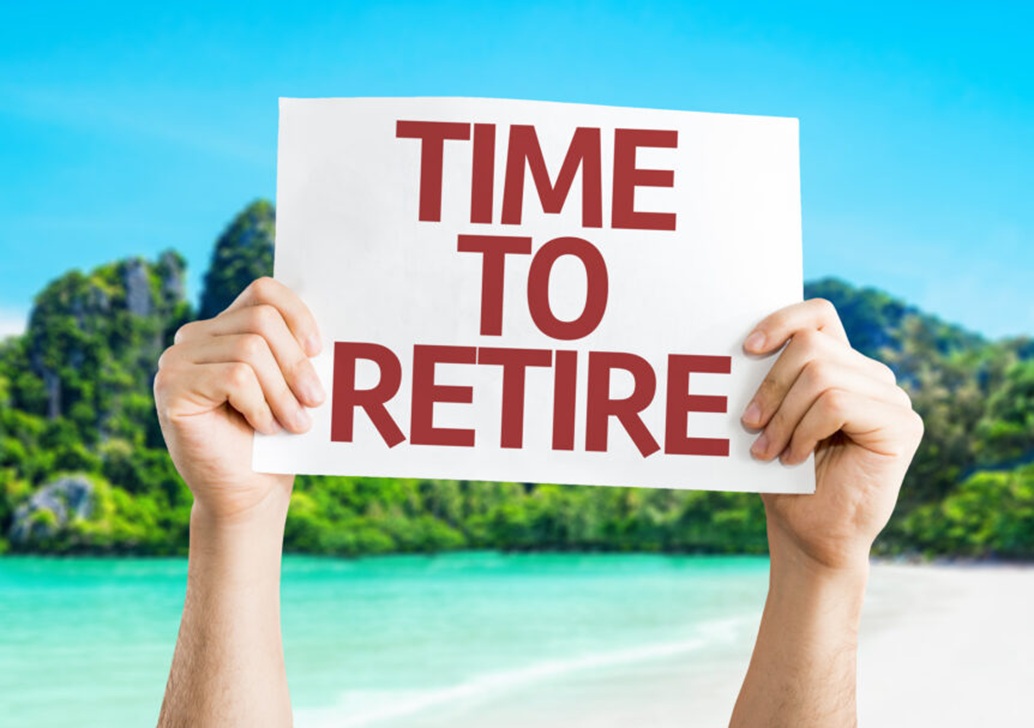L&T Chairman, SN Subrahmanyan has suggested that employees should work 90 hours per week, while Infosys co-founder Narayana Murthy has advocated for a 70-hour workweek. No one is talking about ‘when to retire’ from work.
We hear about some smart businesspeople making millions of dollars in their 20s and retiring. On the other hand, with good health in their 70s or even in their 80s, some people keep working full-time. So, what is the suitable age one should quit a job/ business to call it a day and relax at home finally? To be with family and friends, to travel as one should please or to pursue a passion. One hears that a few people love the idea of ‘working from home’ so much that they do not want to go back to a regular job anymore. When forced, some quit jobs altogether rather than face the daily grind of having to commute and work 8 to 10 hours.
Of course, retirement means different in different countries. Age is also not the same in different government departments or privately owned businesses. The decision to retire by shopkeepers or lawyers/ doctors/ chartered accountants wholly depends on themselves. Some keep working till they die in their 80s or 90s.
Frailty in Old Age
Ideally, retirement should be linked to frailty. What is frailty? Frailty manifests as we age progressively. It manifests as weakness, slowing and reduced energy expenditure. Scientists try to determine frailty with poor grip strength, slower walking speed, reduced physical activity, weight loss and early fatigue. Depending on the level of frailty, the body’s resilience to bounce back from an illness or an injury slows down.
Studies show that South Asians are more prone to frailty at a younger age than others. A higher level of frailty indicates early death. A few studies on frailty in Indians indicate frailty in 44% to 59% of all adults. Frailty is related to the state where people live, level of physical activity, ethnicity, education, type of job, and wealth index. More on frailty in a later post!
Factors to Consider to Decide the Retirement Age
So, what is the right age to finally call it a day? This question needs certain factors to be considered:
- Wisdom. Is the person wise enough to make a decision? Wisdom unlike education and inherent intelligence comes with experiences and maturity. Decision-making for retirement is of utmost importance. Due thought should be given and discussion with family members, especially the elderly, can be of immense help. 20-year-olds retiring with a couple of million dollars realize their folly in a few years and are desperate to continue with jobs or self-employment schemes. The hippy movement of the 1960s and 1970s failed for this reason. When does one become wise? Depends from person to person – some are wise in their 40s, others become wise in their 70s.
- Financial liabilities. This is the most important criterion for some. Can the person sustain their current lifestyle for the entire duration of their retired life? Are their ‘reserve funds’ meant for short-term emergent use or long-term care? Of course, those who are to receive substantial pension benefits at a specified age can easily choose their retirement age.
- Family commitments. Moving away from a joint family system is an important factor. Does the spouse earn? Is there one or more dependent parents/parents-in-law? Are the children finally settled? What if one in the family is disabled?
- Health and Medical insurance. The health of a person is another factor. Does his/ her health permit to continue working? How frail is the person? Would it be better to keep working to avail of medical benefits? Does the head of the family have medical insurance? Does the scheme cover all dependents? What about long-term/ expensive treatments? Does it cover payments to specialised caretakers? Does it cover expensive disability aids? New vaccines for new diseases?
- Property. A self-owned house in a suitable city and locality is of the utmost importance. Ideally, it should be constructed/ bought when one is employed as the status and large social circle can be of help in this gigantic task. Another factor in the place of settlement is the facilities provided by the government in terms of access to medical care, old age pension, and free or subsidised travel in the city.
- Level of stress in the job/workplace. Stress includes physical as well as mental. Those who have partaken in highly stressful jobs prefer to quit as soon as they can.
What Happens Next After Retirement?
The hangover of retirement parties is over. The house has been built and inhabited. The financial planner has assured you of steady income keeping with inflation. You’ve visited all your friends and close relatives. It’s been a week, of sitting at home with nothing to do. The coworkers start ignoring your calls. Boredom strikes. You are reminded about the ‘Fused bulb’ story read on social media- no one recognises you or your status of the last job. There are some ‘jobs’ which can still be done, for a long time after retirement before you are too frail:
- Revisit Properties/ Assets and Finances. See if all are registered in your name. Appropriate nominations are in place as per the laws of the central government and the state government. Revisit bankers. Make a list for the next step.
- Will. This should be a gift to the kin and should make them happy. Unfortunately, many Indians are either too lazy or feel invincible and do not make a will. Not having made a proper will is a sure-shot way of creating bitterness between your spouse and the children. Consult a friendly lawyer/ chartered accountant/ elder person who has made a will and registered/ notarized it.
- Put in action the ‘plan of means’ to spend the post-retirement life. Following your passion? Read, attend tutorials, seek training and then make a start. Continue for a few weeks, then review with your spouse/ children- is this what you wish to do for the rest of your life? Continue if yes, else think again and make a fresh start. Lying lazily on a hammock is not the way.
- Travel. This can be done till our mind and body stay strong. Once frailty sets in, travelling, especially international travel is out.
- Make and strengthen your new social circle. At least one good neighbour should be cultivated as a person who can help in crises. Keep a few other close relatives/ friends on the ‘FAST dial’ who may be able to come in emergent situations. A wider social circle is necessary to maintain our social health too. Social media is another good way of keeping in touch with those who live at a distance.
- Learn Life skills. Learn how to keep the house clean, wash and iron clothes and make a quick meal. Those stuck in the Covid pandemic would understand the importance of such skills. One never knows when one has to live alone. At least, be prepared while the body and mind work.
- Health. Keep up with immunisation/ vaccines and periodic medical checkups. Make a visit to the nearest clinic and hospital on which you will be dependent for the rest of your life.
- Do not fall into the trap of inactivity. One must exercise at a specific time and place. Exercise twice a day if not having a full-time job. One set in the morning should consist of exercises for strength, suppleness (flexibility) and balance. These can be done by rotation on specific days of the week. The fourth exercise should be for endurance. It can be a walk or any other activity of personal choice. This should be for at least 45 minutes which makes the heart rate go up and one begins to sweat. There is no age limit for learning a new healthy activity- dancing gardening, swimming, jogging- the list is endless. A word of caution. Seniors and those with medical conditions must check with their doctor first.
- Healthy lifestyle. Sleep at night. The daytime nap shouldn’t exceed half an hour. Home-cooked meals at least 6 days a week. Give up tobacco in older age and reduce alcohol intake.
- Indulge daily in prayers or meditation. It is good for spiritual health. For the atheist, another alternative is self-assessment. A fixed time helps in making this a daily, unforgettable routine. Writing about the day or the events around us is yet another good way to get mental relief. Helping others during the day is a great idea. Caring for a pet animal at home is another way of being satisfied with life, especially when one cannot travel
- Security. Not just the house and other assets, the security of our computers/laptops/ cell phones has become increasingly important. Scamsters especially choose the retired and the housewives. Remain alert, keep learning about the newer ways and act accordingly.
- Relationship with spouse. Last but most important is the relationship with the spouse if the person stays at home all day. After the initial ‘honeymoon’ one might get on the nerves of the spouse who managed the home alone. Harmony may be disturbed if the person had been an authoritative boss for many years before retirement. Getting back into a harmonious relationship after retirement needs patience and restraint.
Conclusion
The list of means and ways to remain happy after retirement, even at whatever age, is endless. However, those who retire early may consider another full-time job if they start feeling restless or lazy in a few months. There is no upper age limit for retirement. One can keep working – full-time or part-time, till one is extremely frail. Work need not necessarily mean a 9 to 5 job. If one is financially well off it can be for honorary volunteering purposes too. Decisions on stopping a full-time job can be considered based on certain factors discussed above.
Title image courtesy:https://tacitknows.com/
Disclaimer: The views and opinions expressed by the author do not necessarily reflect the views of the Government of India and Defence Research and Studies
Article Courtesy: https://genkris.wordpress.com/










